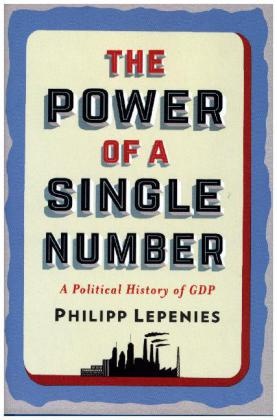Read more
Locating the origins of GDP measurements in Renaissance England, Lepenies explores the social and political factors that originally hindered its use. Not until the early 1900s did an ingenuous lone-wolf economist revive and hone GDP's statistical approach. These ideas were then extended by John Maynard Keynes in the early twentieth century, and a more focused study of national income was born. American economists furthered this work by emphasizing GDP's ties to social well-being, setting the stage for its ascent. GDP finally achieved its singular status during World War II, assuming the importance it retains today. Lepenies's absorbing account helps us understand the personalities and popular events that propelled GDP to dominance, clarifying current debates over the wisdom of the number's rule.
List of contents
Introduction
1. What It's All About: A Short Primer on GDP
2. William Petty and Political Arithmetic: The Origins of GDP
3. The Frustrations of Colin Clark: England
4. Simon Kuznets and the Politics of Gross National Product: The United States
5. War, Kidnapping, and Data Theft: Germany
6. The Ultimate Triumph of Gross National Product
Conclusion
Notes
Index
About the author
Philipp Lepenies is guest professor for social science at the Free University of Berlin. His research focuses on the success of economic ideas and concepts in politics. He is also the author of
Art, Politics, and Development: How Linear Perspective Shaped Policies in the Western World (2013).
Summary
A narrative-driven political history of the most important economic statistic in the world.
Report
"It is an amazing but little-remarked fact that governments all over the world take as their top economic objective the increase of one number: gross domestic product. Philipp Lepenies traces how this strange unanimity came about, taking the reader on a colorful journey through England, Germany and the US and bringing things into the present with an account of current debates about replacing or supplementing GDP with other indicators of welfare. The book is beautifully written, and easily accessible to anyone who wants to know more about what lies behind the world's most powerful number." - Robert H. Wade, London School of Economics. Leontief Prize winner, 2008.

